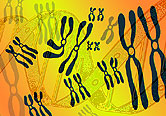
THURSDAY, May 13 (HealthDay News) — Drugstore giant Walgreens says it will postpone selling a controversial at-home genetic test that could purportedly gauge a person’s risk for a variety of diseases and other health threats, such as Alzheimer’s, diabetes, heart attack, certain cancers and whether a couple might produce a child with genetic disorders.
Walgreens, which planned to sell the test kits starting Friday at more than 6,000 of its 7,500 stores nationwide, making it the first U.S. retailer to offer such tests, said it made the decision after the U.S. Food and Drug Administration questioned whether the tests could be sold legally without the agency’s approval.
“In light of the FDA contacting Pathway Genomics [the maker of the test] about its genetic test kit and anticipated ongoing discussions between the two parties, we’ve elected not to move forward with offering the Pathway product to our customers until we have further clarity on this matter,” said Walgreens spokesman Jim Cohn, the Washington Post reported.
Pathway said in a statement late Wednesday, “We respect and understand Walgreens’s decision and we are communicating with the FDA about the Pathway Genomics Insight collection kit. Pathway works very diligently to ensure that our business is compliant with all applicable regulations and guidelines,” the newspaper reported.
When Walgreens said Tuesday that it planned to sell the test kits, some genetic experts worried that consumers simply aren’t ready for this new step forward in the age of “personalized medicine.”
“This is kind of the leading edge of what will be personalized medicine, [but] we’re not at a stage yet where we can take the information [these tests] give us and understand what the significance is,” said Dr. Robert Marion, chief of genetics and development medicine and director of the Center for Congenital Disorders at Children’s Hospital at Montefiore Medical Center in New York City.
“The technology is running way ahead of the ethical, legal and social implications of doing the testing, and we need to sort all this out before we can start to offer these tests on a mass scale,” he said.
Without experts available to help interpret the results, “it will be utter chaos,” Marion added.
Dr. Barry H. Thompson, medical director of the American College of Medical Genetics, added: “We at the American College of Medical Genetics are certainly concerned about direct-to-consumer testing. Genetic information obtained from reliable sources is valuable in terms of health care and family planning, and understanding what’s ahead in one’s life and one’s medical care. But at the same time, any genetic test can have a downside if it’s not reliable information or if it’s not information that’s understood.”
Genetic tests are already available on the Internet, offering everything from paternity tests to tests that claim to predict whether baldness is in your future — even tests that claim to tell how well you metabolize caffeine.
But Pathway’s “Insight Saliva Collection Kit” would have been the first foray onto many neighborhood store shelves. (A New York law prohibits the sale of the test in that state.)
The test purportedly can predict individual risk for diseases (for example, Alzheimer’s or prostate cancer); how likely parents would be to pass certain conditions on to their children; and how well people would respond to various drugs.
While the initial testing kit costs only $20 to $30, having the saliva sample analyzed by the company’s lab would cost another $79 to $249.
A major concern is that people would panic and make unwarranted decisions based on test results, especially without professionals available to help interpret the meaning. Pathway has said it would offer genetic counseling over the phone to those who want it.
“There are psychological aspects to all kinds of genetic testing,” said Thompson. “Obviously if you don’t understand the results, or if the testing provides results that address issues that were not concerns of yours, or it provides information that has implications for other family members, it’s certainly likely to cause apprehension, anxiety and undue concern.”
Marion said such tests are likely to find some abnormalities but most will be medically insignificant.
There are also privacy issues.
“Who has access to this information? Who owns this information? Who’s responsible? This opens a Pandora’s box of questions that are not answerable,” Marion said.
And understanding the results of genetic tests require a fairly sophisticated level of knowledge.
“We have a difficult time explaining risks and understanding risks as far as any of us are concerned,” Thompson said. “I think the individual who takes a test such as this should learn as much as possible, and it’s a good idea to [consult] a health-care professional.”
More information
The Human Genome Project has more on genetic testing.

